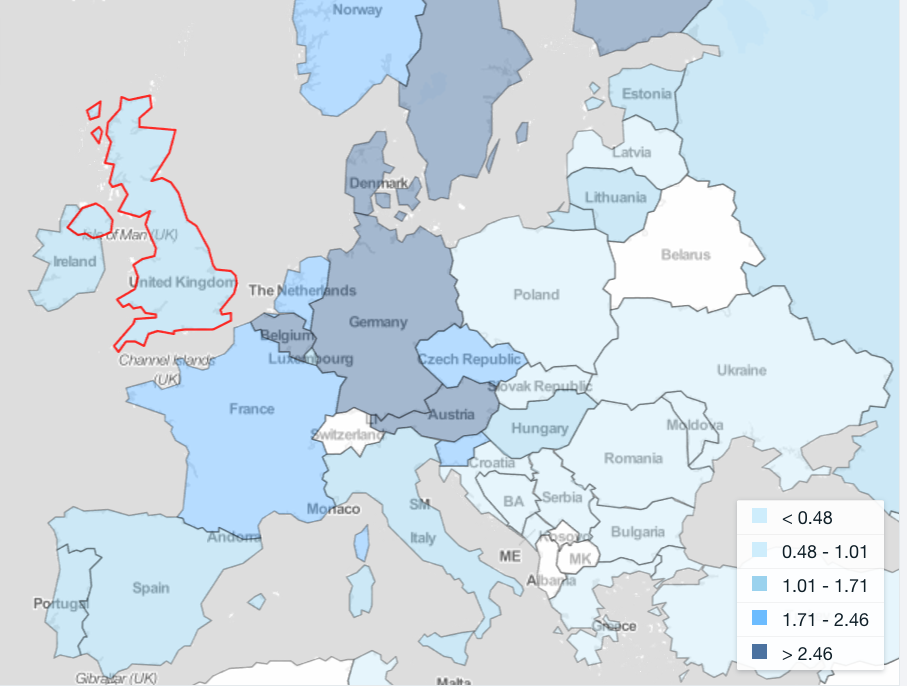The UK's chronic lack of productivity might be explained by its feeble R&D spending

VCG/Getty Images
The UK does not spend much on research and development and it could be the key to solving the country's low productivity problem.
The puzzle is simply put: why do UK workers take five days to make what the French do in four? It has become a long-term challenge for politicians and central bank policymakers alike. Low productivity holds back future investment and wage growth for workers. It is one of the most important — yet poorly understood — concepts in economics.
This announcement from the University of Oxford expresses the entire problem in a nutshell:
The Oxford Sciences Innovation fund will pledge nearly £600 million in investment for science and engineering projects coming from its students and researchers. But all of the new money comes from investors in China, Singapore and the Middle East.
None of it comes from Britain.
Lack of research and development spending mirrors the low productivity of the UK, compared to France and Germany. According to figures from the World Bank, the UK spent 1.7% of GDP on research and development in 2014 – the same as was spent 20 years earlier.
Meanwhile Germany is up at 2.8%, a rise from 2.1% in 1996 and France is at 2.2%.
Here's the data visualised in a map from the World Bank:

VCG/Getty Images
Oxford Vice Chancellor Professor Louise Richardson told the BBC: "It does speak to the disappointing investment by British industry in research and development. We are way below our competitors in France and Germany and below the EU average."
"In fact, 40% of the R&D spend in the UK is by subsidiaries of foreign companies. British businesses are very loath to invest and that really has to change," she said, according to the BBC report.
If the UK is going to keep pace with the rest of the world, its businesses might have to forego some short term profit now for investment in future growth.
NOW WATCH: The US is $19.9 trillion in debt — here are the countries we owe the most
See Also:

 Yahoo Finance
Yahoo Finance 
